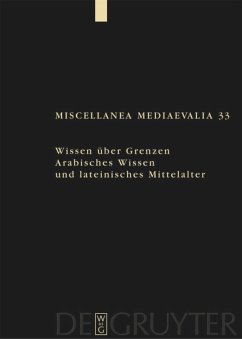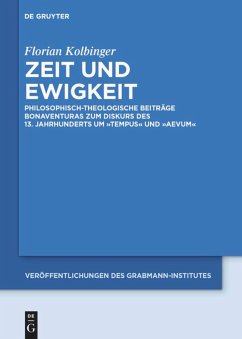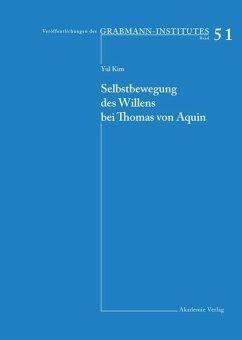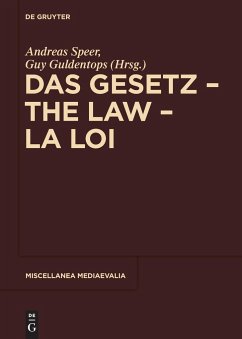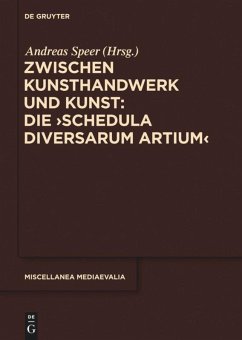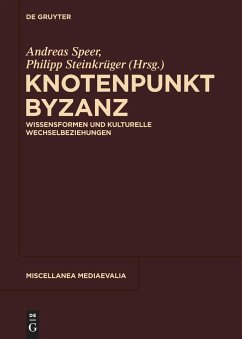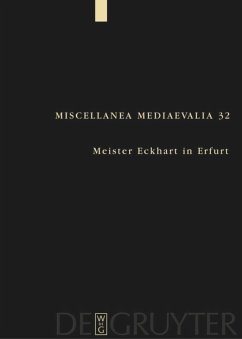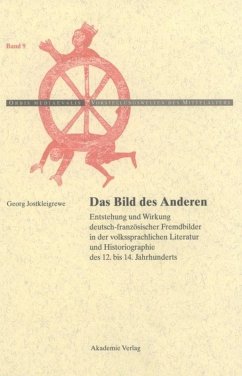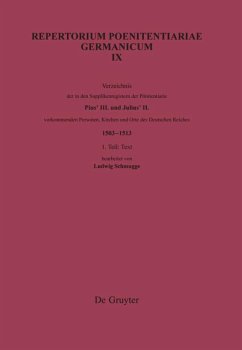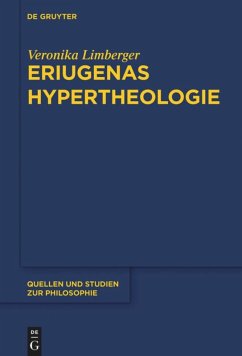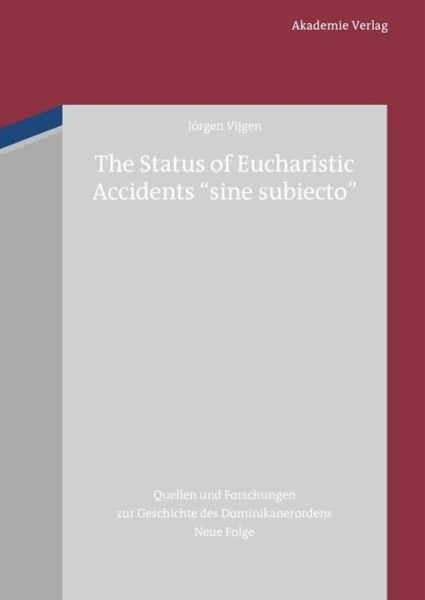
The Status of Eucharistic Accidents "sine subiecto"
An Historical Survey up to Thomas Aquinas and Selected Reactions

PAYBACK Punkte
0 °P sammeln!
If, at the moment of the Eucharistic consecration, solely the accidents remain - as our senses testify - the question inevitably arises: Is it possible for an accident to exist and at the same time not inhere in a subject? This study addresses that question and traces the development of the discussions surrounding the status of Eucharistic accidents that exist without a subject. It covers the period in the Middle Ages up to Thomas Aquinas and examines selected reactions from the first generation of thinkers after Aquinas. It identifies the fundamental philosophical concerns of these authors, t...
If, at the moment of the Eucharistic consecration, solely the accidents remain - as our senses testify - the question inevitably arises: Is it possible for an accident to exist and at the same time not inhere in a subject? This study addresses that question and traces the development of the discussions surrounding the status of Eucharistic accidents that exist without a subject. It covers the period in the Middle Ages up to Thomas Aquinas and examines selected reactions from the first generation of thinkers after Aquinas. It identifies the fundamental philosophical concerns of these authors, their principal insights and conclusions, partly based on hitherto unpublished texts. The entire debate centers on the need to safeguard divine omnipotence; for even God cannot make contradictories, such as accidents existing without a subject, true. On several occasions Thomas Aquinas expressed his concern that the faith, when shown to be false or impossible, would be held up to the ridicule of non-believers. The rise of 'radical Aristotelianism' urged Aquinas and his contemporaries to defend philosophically the possibility of accidents existing sine subiecto. Starting with Berengar of Tours, this study provides a detailed chronological account of the debate in the various 12th century 'schools' and in the early Summae. The most important authors prior to Thomas Aquinas are treated extensively, with a particular emphasis on the authenticity of the treatise De corpore Domini, attributed to Albertus Magnus. The analysis of Aquinas' key texts on the question is carried out in relation to the whole of his thought and its reception by Peter of Tarentasia, Hannibaldus de Hannibaldis and Adenulf of Anagnia. The final part of this study considers the criticism by the Parisian members of the Faculty of Arts: Dietrich of Freiberg, Godfrey of Fontaines, Giles of Rome, John of Paris, John of Sterngassen and HervaeusNatalis. Lengthy attention is also devoted to the famous anonymous Commentary on the Sentences, contained in Ms. 491 of the city library of Bruges (Belgium).




